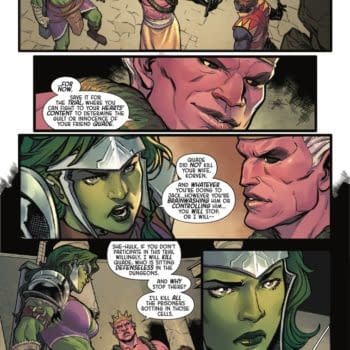Posted in: Comics | Tagged: comic con, Comics, gay marriage, Marvel Comics, new york, NYCC
Gay Marriage In Comics At NYCC
Skip Harvey reports for Bleeding Cool from NYCC and the Gay Marriage In Comics panel;
The issue of sexual identity in comics isn't a new one. From Northstar to the justifiably snide re-introduction of Kate Kane, to Apollo and Midnighter, this idea has been around for a while. Now, however, it's a hot button political volleyball and as gay comics creator and former DC editor Joan Hilty states, "a hot button issue that keeps evolving".
"The success of Avengers and other superhero movies have mainstreamed superheroes in a way," says Paul Kupperberg of Life with Archie, alluding that there's a massive social influence wielded by the industry. Such influence is a double edged sword, often used against the social movements written about or addressed in comics by opposition forces. "I've never seen gay sex in comics and said, 'mm. That looks good for me'. No one has ever been swayed by a picture," Kupperberg continues. "I don't treat Kevin and Clay and differently than Archie and Betty or Archie and Veronica. They're just a regular couple."
"There's a propensity for new characters to represent an entire group," says comic creator Phil Jiminez. He admits there is a tendency to be overly careful with gay characters because "fairly or unfairly, they get stuck with that".
Kevin Keller, the first gay character in Archie comics, is seen as an important figure in the cultural movement of sexual equality because "everyone in Archie is a good guy. They all try to do the right thing," Kupperberg adds. There is no doubt that he's where is morals lie. That, too is a double edged sword because some feel that gay characters and their relationships are defined by heterosexual standards.
"Alan Scott was re-introduced not as a playboy, but in a committed relationship," laments Phil Jiminez. "He was made safe to consumers," but if "there's money to be made, they'll put some Queer s*** out there".
The tension and anger over the opposition to such movements is palatable, but so is the excitement and enthusiasm over the steps forward that have been taken in the last few years.
"It may come slowly," Joan Hilty assures us, "but it will happen."














